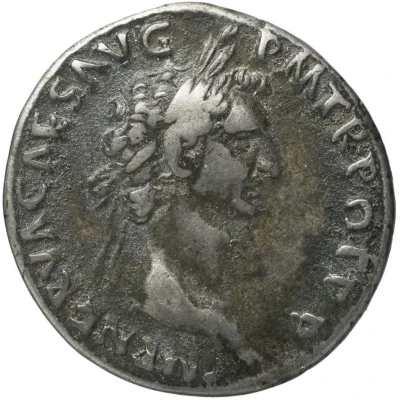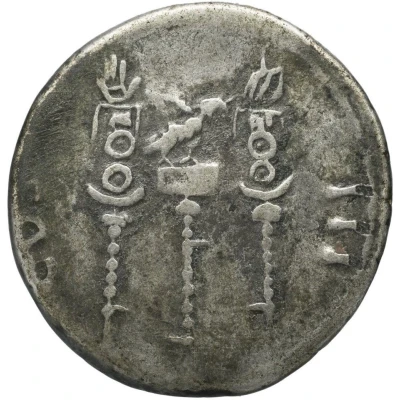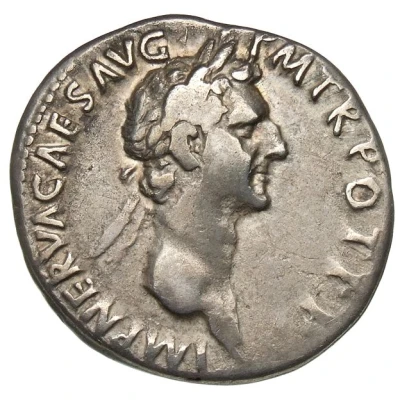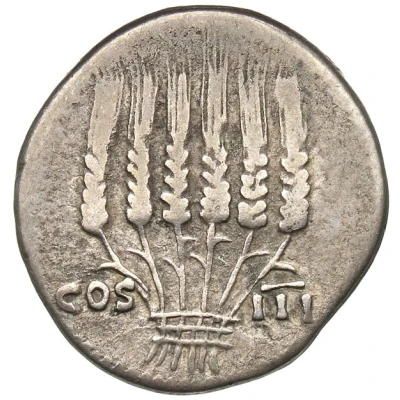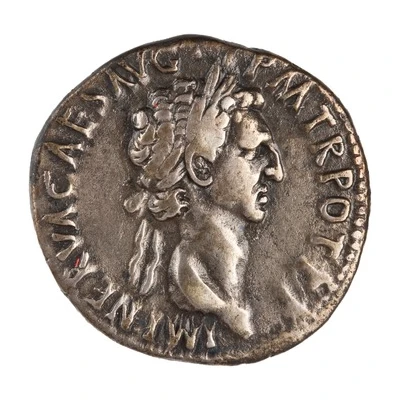
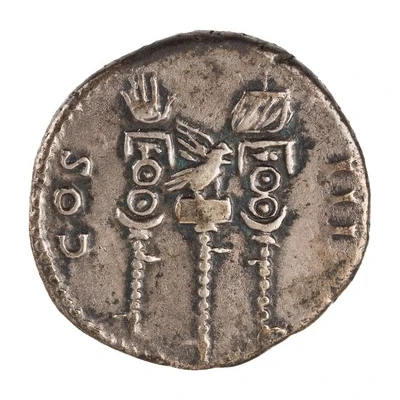

© American Numismatic Society (ANS)
Cistophorus - Nerva COS III
98 year| Silver | 10.2 g | 26.5 mm |
| Issuer | Rome › Roman Empire (27 BC - 395 AD) |
|---|---|
| Emperor | Nerva (Marcus Cocceius Nerva) (96-98) |
| Type | Standard circulation coin |
| Year | 98 |
| Value | Cistophorus = 3 Drachms = 3 Denarii |
| Currency | Denarius, Reform of Augustus (27 BC – AD 215) |
| Composition | Silver |
| Weight | 10.2 g |
| Diameter | 26.5 mm |
| Shape | Round (irregular) |
| Technique | Hammered |
| Orientation | Coin alignment ↑↓ |
| Demonetized | Yes |
| Updated | 2024-10-05 |
| Numista | N#252559 |
|---|---|
| Rarity index | 100% |
Reverse
Legionary eagle (aquila) between two standards, the left one surmounted by a hand and the right one surmounted by a banner.
Script: Latin
Lettering: COS III
Unabridged legend: Consul Tertium.
Translation: Consul for the third time.
Comment
Might be the same coin as RIC 118.
Mass varies: 9.92–10.36 g;
Diameter varies: 26–28 mm;
Source: Online Coins of the Roman Empire (OCRE)
Interesting fact
The Cistophorus was a silver coin introduced by the Roman Emperor Nerva in 98 AD, and it was the first Roman coin to feature the image of a deceased emperor, with Nerva's predecessor, Domitian, appearing on the reverse. This coin was a significant departure from the traditional Roman coinage design, which typically featured images of the current emperor or gods and goddesses. The inclusion of a deceased emperor's image on the coin was seen as a way to promote the idea of the Roman Empire as a continuous and unbroken institution, rather than a personal possession of the ruling emperor.
